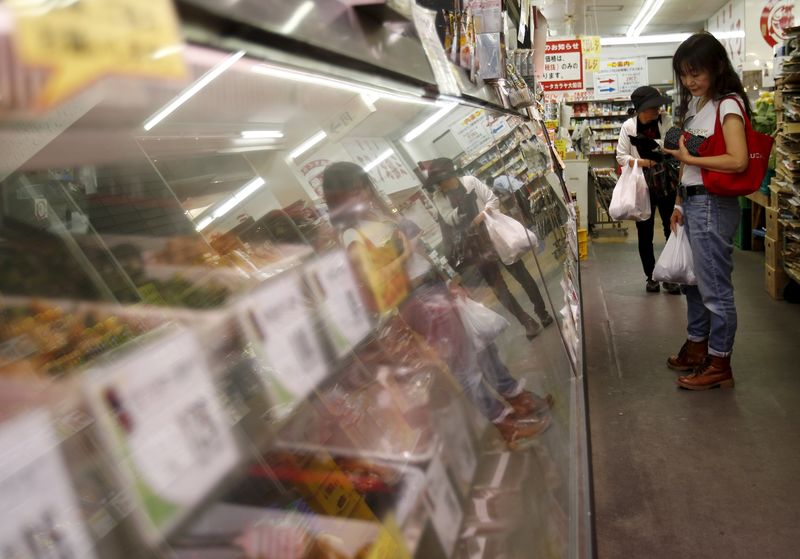By Tetsushi Kajimoto and Izumi Nakagawa
TOKYO (Reuters) - Japanese manufacturers' confidence worsened for the second straight month and is expected to fade going forward, a Reuters poll showed, adding to lingering fears of a recession and keeping policymakers under pressure to deploy fresh stimulus.
Service-sector sentiment bounced from the prior month's fall but is seen worsening again over the next three months, a sign of the fragility in private consumption which accounts for roughly 60 percent of the economy.
The Reuters Tankan - which closely tracks the Bank of Japan's tankan survey - came as a recent run of weak data including surprise drops in factory output and machinery orders cast doubt on the strength of business activity.
The bleak business outlook could undermine policymakers' efforts to generate a virtuous cycle of growth and investment led by the private sector, which is crucial for the BOJ's rosy projections that the economy is on track to hit its ambitious 2 percent price goal next year.
"Even if the economy averted a second straight quarter of contraction in July-September, growth would not be strong due to weak production," said Yuichiro Nagai, economist at Barclays (L:BARC) Securities Japan.
"Inflation expectations appear to be falling in recent months, so we still expect the BOJ to act on Oct. 30. It is expected to cut its growth projection for this fiscal year."
The poll of 515 big and mid-sized companies between Sept. 30 and Oct. 9, of which 268 responded, showed companies are struggling with sluggish demand both at home and abroad as slowdown in China and emerging markets clouds the outlook.
"Orders have been put off notably. This usually happens when sales slow at our manufacturing clients. The economy seems to me to be in a downtrend," a manager at an electric machinery maker said in the survey, which companies answer anonymously.
The Reuters Tankan sentiment index for manufacturers fell to 7 in October from 9 in September, matching a low hit in May 2013, dragged down by sectors including oil refining, chemicals, food and cars. The index is seen unchanged in January.
The service-sector index rose to 27 from 23 in September, led by retailers and transport firms, which likely benefited from the boom in foreign tourism.
Reflecting the uncertain outlook, however, the index is seen falling again to 24 in January.

The Reuters Tankan followed mixed readings in the last BOJ tankan on Oct. 1, which showed big firms maintained their bullish capital expenditure plans for this fiscal year, although core machinery orders, a leading indicator of capital expenditure, have fallen in the past three months.